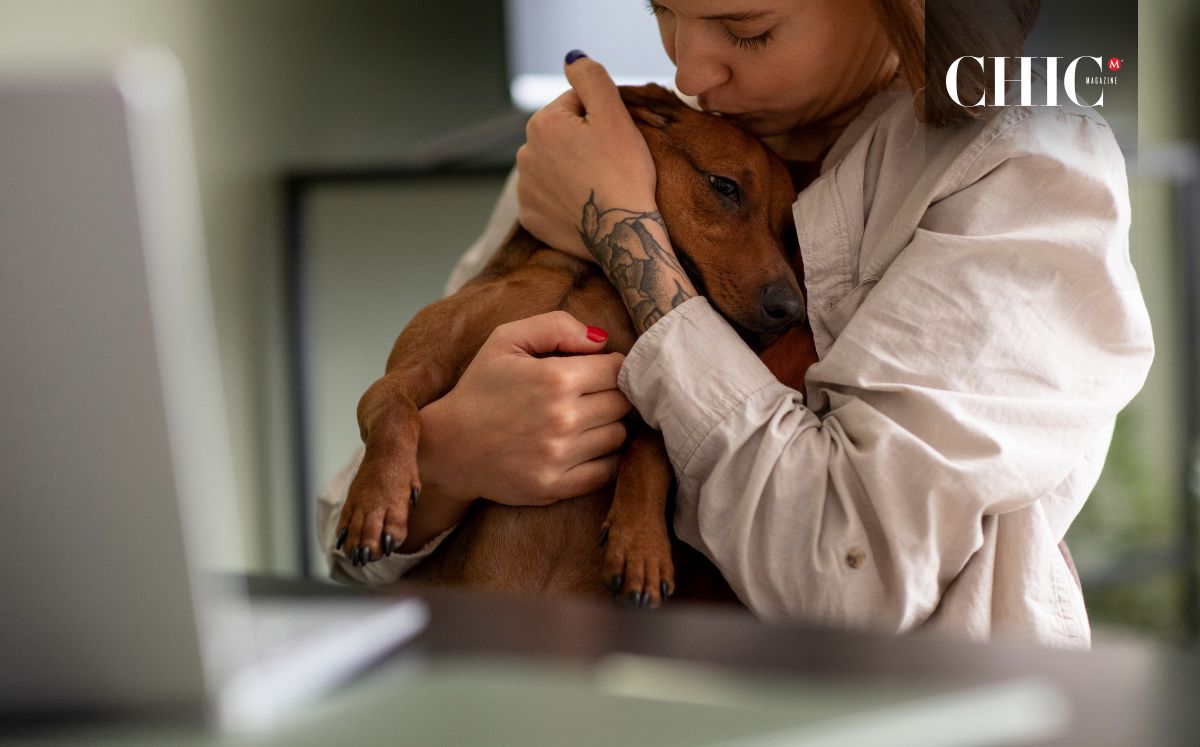The relationship between humans and their pets is one of the most special, and when a diagnosis like cancer comes into the lives of our dogs, the emotions and doubts multiply, but What should be done in these cases?
To provide clarity on this issue, in Chic Magazine we interviewed to the MVZ Esp. Teresita del Niño Jesús Lerma ÁvilaMedical Specialist in Medicine and Surgery of Dogs and Cats at the UNAM-Banfield Veterinary Hospital, who shared valuable information about the symptoms, diagnosis and treatment of cancer in our faithful four-legged friends.
Symptoms of cancer in dogs to watch for
“One of the first symptoms guardians should notice is unexplained weight loss, even when the dog continues to eat well,” comments Lerma Ávila. Furthermore, the decreased physical activity, vomiting, diarrhea, or lack of appetite They are warning signs.
Some dogs may also show difficulty breathing or the appearance of lumps on the skin that can be perceived when touching or hugging them.
The process of diagnosing cancer in dogs
Detecting cancer early is crucial, and diagnosis begins with a physical evaluation performed by the veterinarian.
“General blood analysis, x-rays, ultrasounds and tomography scans are essential complementary studies”says the specialist.
The histopathology study is the most conclusive, since it allows the exact nature of the tumor to be identified. The expert emphasizes the importance of everyone These studies are interpreted together to obtain a clear view of the patient’s condition.
Dog breeds most likely to get cancer
Some dogs are genetically more likely to develop cancer. “Breeds like the golden retriever or the boxer tend to be more susceptible,” comments Lerma Ávila.
However, the expert emphasizes that the cancer has a multifactorial origin, where factors such as age, diet and the environment in which the dog lives.
Treatment Options and Prognosis for Cancer in Dogs
Cancer treatment in dogs has evolved considerably. “Today, there are more specialists and options for both surgical and clinical treatment”indicates Lerma Ávila.
Chemotherapy is a common option, although in Mexico, radiation therapy is less available. Fortunately, dogs do not usually experience the same serious side effects as humans.
Digestive symptoms are the most common, and some changes may be noted in blood tests during treatment.
The prognosis depends on several factors: the type of cancer, how quickly it is diagnosed, the response to treatment and, of course, the general state of health of the dog. “The commitment of the family is essential in the entire process”says Lerma Ávila.
Alternative treatments and palliative care for cancer in dogs
When it comes to cancer in dogs, Lerma Ávila urges guardians to be careful about alternative treatment options.
“Everything must be reviewed and authorized by the treating veterinarian,” underlines. Although natural therapies can be complementary, the specialist emphasizes that the priority It should always be the well-being of the patient.
Regarding pain, the veterinarian states that treatments should be used to avoid the dog’s suffering. “Pain management is a fundamental part of treatment, whether surgical or through medication,” indicates. The main objective is always to improve the animal’s quality of life at all times.
The importance of cancer prevention in dogs
Finally, prevention plays a key role. Early spaying can significantly reduce cancer risk in some cases.
“Although it is not a guaranteeit does help prevent certain types of cancer, clike breast or prostate“comments the expert. However, proper nutrition and maintaining a healthy weight are also important factors to consider.
Emotional support for dogs with cancer and guardians
Cancer not only affects dogs, but also their humans, who go through a complex emotional process. “Emotional support is essential”says Lerma Ávila.
Guardians must be present, patient, and ensure a decent quality of life for your pet. In addition, there are veterinarians specialized in areas such as thanatology and ethologywho can offer support to both dogs and their families during this difficult time.
Cancer in dogs is a disease that can be devastating, but with timely diagnosis, appropriate treatment and the necessary emotional support, it is possible to offer them a longer and better quality life.
The MVZ Esp. Teresita del Niño Jesús Lerma Ávila emphasizes the importance of early detection and constant monitoring by a specialist veterinarian.
